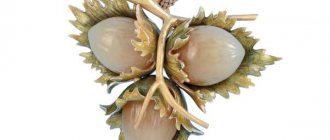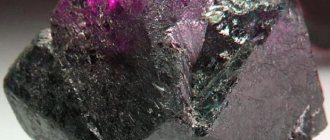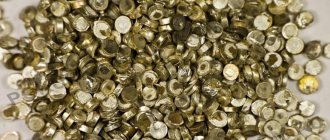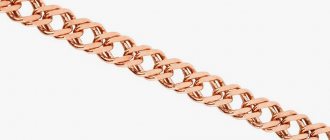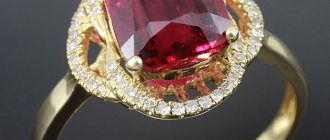Here we will talk about activities that are associated with beauty and luxury.
From this article you will learn what kind of profession a jeweler is, what he does and what functions he performs during his work. We will also tell you where and how to get training in order to gain knowledge and practice in jewelry making. To briefly answer the question: “Who is this jeweler?”, let’s turn to Wikipedia. It says that a jeweler is a person who creates, repairs and cleans jewelry of precious metals, with or without the use of stones.
CALL A LAWYER
HE WILL SOLVE YOUR QUESTIONS FOR FREE Moscow, region 8 (499) 577-00-25 ext. 130 St. Petersburg, region 8 (812) 425-66-30 ext. 130 Federal number 8 (800) 350-84-13 ext. 130
History of the profession
- Since ancient times, people have decorated themselves with various products made from available materials (stones, bones, bronze). This is precisely the beginning of the profession of “jeweler”.
- The first items that look more perfect are the jewelry found during excavations in Egypt. They were found in the pyramid of one of the ancient pharaohs.
- Over time, people learned to make exquisite jewelry designs, getting closer and closer to ideal shapes and proportions.
Jewelry spoke about a person’s status in society. Since ordinary peasants could not afford products made of precious metals, they were content with copper or bronze jewelry.
What kind of profession is this
In itself, the profession of a jeweler is associated with beauty and luxury. And this is no coincidence, since such a specialist works with precious and semi-precious stones and metals, processing them and obtaining real works of art.
Wikipedia defines what kind of profession a jeweler is. A jeweler is a well-trained specialist who understands precious stones, specializing in the manufacture and repair, maintenance of jewelry, cleaning and partial restoration.
The peculiarity of the profession is that it is one of the most ancient. It originated at the moment when a person became interested in ways to decorate himself in such a way as to stand out, demonstrate his social status and position in society:
- For this purpose, at the beginning, various beautiful shells, bones, pebbles and many other available materials were used.
- Later they began to try to embellish them, to make them more attractive.
- And with the discovery of gold, silver and precious and semi-precious stones, they began to be used. And the specialist who performed such work began to be called a jeweler, since very often the process required special precision and attention to detail.
As the profession developed, craftsmen appeared who made exquisite, luxurious products that could be called works of art.
Description of the profession
Needless to say, making jewelry requires special skill, effort and knowledge, as it is a very delicate and complex work.
There are several processes that are used in making jewelry:
- Metal forging;
- Coinage;
- Casting;
- Creating artistic metal grain.
Also, when making jewelry, there are a huge number of processes that every professional craftsman must master.
Jeweler's work schedule
Jewelry designers who work for themselves create their own work schedule, based on the number of orders and plans for creating collections. One week they can work 10 hours daily, and the other they can devote to rest. Hired employees adhere to the standard work schedule adopted by the company.
If you decide to become a jewelry designer, contact STUDIES&CAREERS specialists who will help you choose the optimal training program for you and will go through with you all the stages of enrollment at the Marangoni Institute of Fashion and Design in Milan.
Jewelry directions
The name of the profession “jeweler” is a generalized concept that unites all specialists involved in this industry.
There are a number of categories into which jewelry craftsmen are divided:
- A craftsman who creates individual products according to his own sketches or personal sketches of clients;
- Engraver , a person who inscribes jewelry;
- Filigree maker . Create openwork patterns on created jewelry;
- Bracelet . Engaged in the manufacture of chains and bracelets;
- Mounter . Performs final processing of jewelry.
It is worth understanding that no matter what work a jeweler performs, any of these processes requires high skill and good knowledge.
What you should know and be able to do
Let's look at what a jeweler does.
Primarily, his scope of activity includes the manufacture and repair of various jewelry. Moreover, very often the process itself is quite complex and labor-intensive, requiring a lot of attention and patience.
Very often, a specialist will need to be fluent in equipment that allows him to perform the following types of work:
- forging of various types of metals;
- minting works;
- engaged in casting;
- obtaining a special artistic grain of precious metals.
This description is far from complete, but it allows us to obtain primary information about what a specialist should know and be able to do.
Depending on the chosen direction, jewelers are divided into the following categories:
- a specialist engaged in the manufacture of unique and original products , using sketches of his own design or proposed by the customer;
- professional engraver – specializing in applying inscriptions to the surface of finished jewelry;
- filigree master – engaged in the production of openwork patterns on manufactured jewelry;
- bracelet maker – the main specialization is the production of original and beautiful chains and bracelets;
- master assembler - performs the final work on creating jewelry, which includes processing the finished jewelry.
Naturally, in order to perform all work with high quality and accuracy, the specialist will have to undergo preliminary training and continue to master and gain new knowledge. For example, there are clubs for children where they learn arts and crafts.
Requirements for the personal qualities of a specialist
As everyone has long known, each profession requires special personal qualities from a person, thanks to which the work will be as productive and comfortable as possible, especially for the specialist.
CALL A LAWYER
HE WILL SOLVE YOUR QUESTIONS FOR FREE Moscow, region 8 (499) 577-00-25 ext. 130 St. Petersburg, region 8 (812) 425-66-30 ext. 130 Federal number 8 (800) 350-84-13 ext. 130
The list of requirements for a jeweler will be as follows:
- The ability to organize your time so that the day is as productive as possible;
- Don't be afraid of monotonous work;
- Have perseverance;
- Be responsible, aware and attentive;
- Have a creative nature and an artistic eye.
What abilities do you need to have for your specialty?
First of all, it is an artistic flair. It’s quite possible to develop it as a skill. Also, the specialist must have spatial imagination, which will help him quickly navigate when communicating with the client and laying out the sketch.
Jewelry designing is more of a lifestyle than a craft. Those who are not ready to devote themselves entirely to the profession will not achieve any significant success.
Key qualities of a jewelry designer:
- developed creative thinking;
- perseverance;
- accuracy;
- well-developed fine motor skills;
- the ability to quickly and for a long time concentrate on important details;
Communication skills will also help. It has been noticed that a good half of clients essentially do not know what they want. Therefore, we have to extract from them some images, preferences and other nuances that make it easier to adjust the sketches.
How to become a jeweler
In order to become a jeweler, you must have certain personality qualities, as we wrote about above, as well as undergo special training.
It is worth keeping in mind that jewelry making is a rare department in educational institutions.
Therefore, if you have chosen a place where you can acquire this profession, you will have to study the following subjects:
- Decorative and applied arts and working with precious metals;
- Jewelry;
- Jeweler.
You can acquire the profession of a jeweler by enrolling in the following educational institutions:
- Belgorod Institute of Art and Culture, Belgorod;
- Art and Industry University named after S.G. Stroganov Moscow city;
- University named after A.G. Petrovsky Bryansk.
- There are also various courses where you can quickly learn this skill.
Despite the fact that these specialties are not very popular among students, every year the demand for them in the labor market is becoming higher.
How to become a jeweler
—What did you dream of becoming as a child?
- Firefighters. I thought that this was a courageous profession and that everyone respected firefighters. But then I found out that they were getting pennies, and I changed my mind. I was involved in sports - powerlifting, so after school I decided to enroll in the Faculty of Physical Education. But he didn’t become a physical education teacher either: a jeweler he knew suggested going to him as an apprentice, his father supported him and said: “Go, you’ll always earn money for food.”
I was hooked on this profession as soon as I saw the metal melting - it was very beautiful!
For a whole year, every day after classes at the university, I went to the workshop, studied, and then began to carry out simple orders. A year later, my teacher went on vacation, leaving all the work to me. I was very worried: it was scary to work without support, I was afraid of messing up. But I did it, and also earned money.
— Do you remember your first completely independent job?
- Yes, I still keep it. This is a pair of silver wedding rings. They are terrible (laughs): there are visible seams on the rings, they are uneven, and not polished properly.
— As for “earning money for food”: does a jeweler always have work?
- Yes. Firstly, in store-bought jewelry, something often tears, bends, breaks, and people go to jewelers for repairs. Secondly, in the workshop you have the opportunity to make jewelry that no one else will have. According to any sketch, any shape and size.
Pendants in the shape of boxing gloves were made as a gift for world boxing champion Alexander Besputin, who trained in Tula last summer.
Again, handmade: even two identical rings will never be the same. I once had an order from Israel: a girl asked for ordinary congo earrings (rings). There are plenty of them in stores, but she wanted handmade ones.
Weave bracelet "Pharaoh" and lock "Box". The jeweler says that this was his most difficult job in a year.
— What talents and qualities are needed to work as a jeweler?
– You need to have perseverance, hard work and communication skills. The ability to communicate is very important - you work not only with metals and stones, but primarily with people. As for talent, today you don’t have to be an artist to work in the jewelry industry: in our age, most products are made using a 3D computer model.
Professional Responsibilities
And now we should tell you what the jeweler does during his work and what is included in the list of his responsibilities.
- Creates a sketch and drawing of the future product;
- Selects the technique in which the decoration will be made;
- Prepares the future product;
- Finishes the product, inserts a stone, makes engraving;
- Works with enamel.
These processes are quite complex and require special efforts and a reverent attitude from the professional to their work.
Features of the profession
Creating unique jewelry is quite complex, intense and mostly manual work . In addition to specific skills, a jeweler requires a lot of patience, as well as time. It can take months to produce one designer item.
A true jewelry designer is a multifaceted personality who combines both physics and lyricism. This tandem is dictated by the specificity of the profession. Here we have chemistry, modeling, optics, design itself and gemology.
It is also useful to read: Features of the profession of an advertising graphics artist
Pros and cons of the profession
Now let’s figure out what are the pros and cons of this type of activity that professional jewelers get along with.
First, let’s look at all the good things about being a jeweler:
- Opportunity for creative self-expression;
- High professional demand;
- Opportunity to open your own business;
- Good pay.
And now about the disadvantages of the profession:
- High responsibility;
- Requires perseverance, monotonous work;
- At the initial stage of labor activity, low wages.
Let's sum it up
Based on the information presented in this article, it can be understood that the profession of “jeweler” is perfect for people who have creative potential and their own artistic vision. Thanks to these personality traits and professional training, a person has every chance of having a successful career, creating not just jewelry, but real works of art.
A person who reads this article is unlikely to ask the question: “Who is this jeweler?”
You might be interested in the article: Who is an ethnographer, features of the profession, what does he do?

